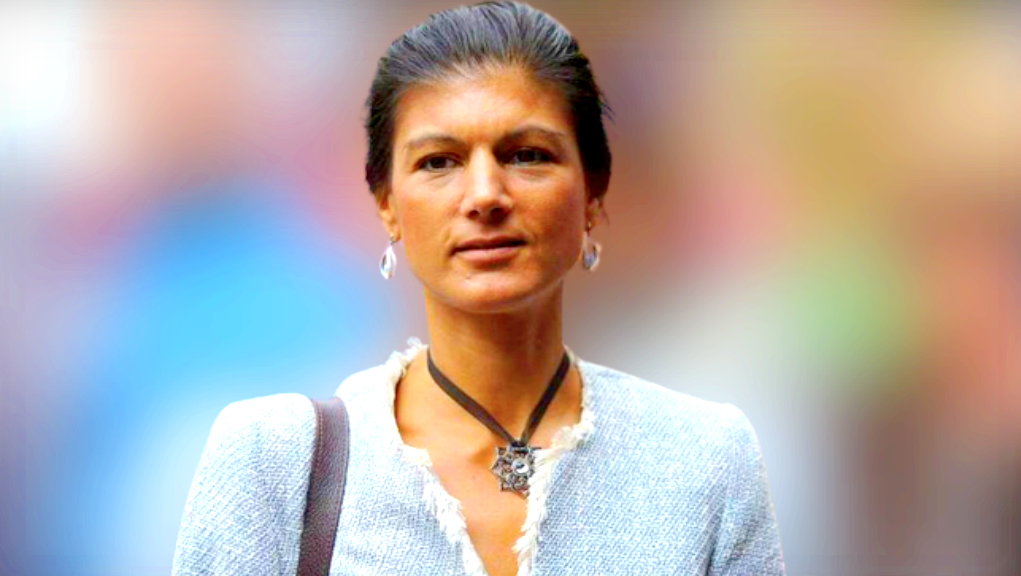Politics
Covid-Skeptic, Anti-climate Alarmism, Against Mass Migration and Ukraine Military Help: a New Face For Germany’s Left, or Copycat of the Right?

The geopolitical reality in Europe is causing many countries to shift from liberal to conservative and vice-versa, and is also bringing about a host of new approaches to old ideological stands.
In Germany, where Olaf Scholz and his coalition are deeply unpopular, new options have appeared in the right side of the political spectrum – and now, also on the left.
After the conservative party Alternative for Germany (AfD) shot up to second place in many state races throughout the country, a proposed new leftist party seem to be copycat’ing many of the AfD’s policies, always in the context of their leftist thinking.
The star of Germany’s most leftist parliamentary party has called it quits. She means to set up her own populist formation, skeptical of both green issues and of support for Ukraine.
Sahra Wagenknecht, who grew up in East Germany, daughter of a German mother and an absent Iranian father, aims to win over disgruntled voters of left and right.
Reuters reported:
“‘Many no longer know who to vote for or vote for the right out of rage and despair’, she said. ‘It can’t go on like this. Otherwise we probably won’t recognize our own country in ten years’ time’.
With Germany’s economy battered by high energy prices and inflation, low support for the parties of Chancellor Olaf Scholz’s centre-left coalition is undermining the conservative Christian Democrats, creating opportunities for populists.
‘At a time of crisis… Left legislators should concentrate on doing their job’, said Left party leader Janine Wissler. ‘And that is left-wing opposition and not the ego trip of founding a new party’.”
The current fragmentation of the electorate has given rise to the ‘far-right’ Alternative for Germany (AfD). The party came second in several recent elections, leading some to think the left is copying their ideas and policies.
Wagenknecht dos not deny that she hopes her new party can tap into some of these ‘disenfranchised voters’.
“‘I was described as close to Putin or pro-Russian for wanting a negotiated solution in Ukraine’, she said. ‘It’s your legitimate right not to like us or not share our positions. But… don’t take the cheap route of ascribing to us things we don’t represent’.”
She defends some policies that may appeal to voters outside of the usual leftwing field: called for tighter restrictions on immigration, opposes sending arms to Ukraine and called for a negotiated solution to Russia’s invasion of the country.
The Guardian reported:
“Wagenknecht, who was born in the former East Germany to an Iranian father and German mother, denounced ‘unchecked migration’ – which she said was aggravating ‘problems in poor neighborhoods’ – as well as ‘blind, haphazard eco-activism that makes people’s lives more expensive without doing anything to help the climate’.”
Wagenknecht blamed Nato and the west for Russia’s invasion of Ukraine, has opposed sending arms to Kyiv and also imposing sanctions on Moscow.
“Economic sanctions against Russia had ‘cut us off from cheap energy without viable alternatives’, she said on Monday, adding that Scholz’s government had abandoned ‘the important tradition of détente’ and conflicts ‘cannot be resolved militarily’.”
Also, back during the Covid pandemic, she cast doubts about government measures ‘to control the spread of the virus’.
Associated Press reported:
“[Her] aim is to formally launch the party in January, in time for European Parliament elections in June. Three state elections in Germany’s formerly communist east will follow next fall.”
Wagenknecht says that Germany’s education system is and that ‘unregulated immigration is intensifying the problems in schools’.”
“There has been widespread speculation that those positions could appeal to voters who might otherwise choose the nationalist, anti-migration AfD — particularly in the less prosperous east, where Wagenknecht’s most recent party, the Left Party, has gradually declined over the years and AfD is at its strongest.
[…] ‘Of course we won’t make common cause with AfD,” Wagenknecht said Monday. “We are launching a new party so that all the people who are now thinking about voting for AfD or who have already done so — out of anger, out of desperation, but not because they are right-wing — have a serious address’.”
Read more about Germany:
AfD Party Surges in Local Elections in Germany, Passing Olaf Scholz’s Governing Coalition
Read the full article here


















